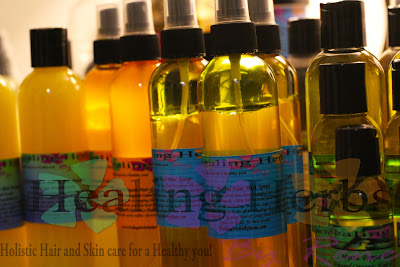The Truth About Natural and Organic Products
via NaturallyCurly.com by Karen Mcintosh;
The average woman applies up to 200 chemicals to her skin every day through cosmetics, lotions and hair-care products. Yet few question the reality behind the marketing promise on our favorite bottle or jar of cosmetic, hair or skin product. After all, they come from reputable companies, are bought by millions of women around the world, and their ads demonstrate how beautiful we can be if we use them regularly. What’s not to trust?
Standards for Natural and Organic Beauty Products
You can buy cosmetics labeled natural and organic in supermarkets, drugstores, warehouse stores, online and in salons. But cosmetics are among the least-regulated products on the market, and products that are labeled organic or natural might not actually be. Major loopholes in federal law allow companies to use nearly any ingredient in beauty products—even chemicals that are known to harm human health and the environment.
The FDA does not review or regulate what goes into cosmetics before they are marketed to salons and consumers. It bans or restricts only 11 chemicals from cosmetic products compared to the 1,100 chemicals the European Union Cosmetics Directive bans from cosmetics.
But there are companies who care about the interests and safety of consumers, salon professionals and the environment.
Planet, People and Product
Nature is a cycle—of caring, taking and giving back—and producers of natural and organic beauty products share a deep respect for it. They join forces with nature, using its resources while sustaining them. They respect biodiversity, form long-term relationships with the people who actually cultivate the plants. And they follow fair trade practices.
Products with natural ingredients perform better without harmful chemical ingredients that enter the bloodstream by being absorbed through the skin. They also contain fewer irritants and allergens, and are earth friendly causing little to no negative impact on the environment.
Sales of natural and organic beauty products reached $7 billion in 2008 and accounted for $1 billion of growth in the cosmetic market. Sensing a tipping point, smart and responsible companies voluntarily began making safer products and adopted the triple bottom line of not just profit, but also planet and people. The ranks of companies who are adopting these practices are slowly growing with the support of organizations like NATRUE.
NATRUE – True Friends of Natural and Organic Cosmetics
A non-profit organization based in Brussels, NATRUE helps manufacturers maintain standards for natural and organic cosmetics (and their ingredients) by promoting industry-standard, global certifications for the usage of natural and organic beauty products.
Founded in 2007, NATRUE now represents two-thirds of the European natural and cosmetics market. Brands like Weleda, Dr. Hauschka Skin Care, Kneipp, Logona and Lavera are NATRUE certified. Burts Bees is the first U.S. manufacturer to join.
Drawing a Line Between Conventional and Natural Cosmetics
Most cosmetics are full of synthetic ingredients that NATRUE doesn’t think are necessary. Their globally recognized certification label tells you which products you can trust by guaranteeing that a product is as natural as it can be. The NATRUE label means the organic and natural product actually contains certifiable ingredients.
To bear the NATRUE label, a product must have natural and organic ingredients and use soft manufacturing and environmentally friendly practices. NATRUE certified products do not contain synthetic fragrances and colors, petroleum derived products (paraffins, PEG-, propyle-, alkyle-, etc.), silicone oils and derivatives, or genetically modified ingredients. Furthermore, ingredients and products must not have been tested on animals. NATRUE certifies both products and raw materials, and maintains a raw materials database for products that bear their label.
The NATRUE label has three certification levels starting with the Natural Cosmetics certification. It sets a high base standard that must be attained before a product can qualify for the other two levels. The NATRUE certification process is transparent, independently managed and all certification criteria and information is available at their website.
Consumers and Salon Professionals Benefit
The NATRUE label allows consumers to avoid potentially harmful chemicals in the beauty products they use every day. Stylists can provide customers with safe, effective, non-toxic products and protect customers and employees alike from exposure to harmful chemical ingredients. They can also encourage manufacturers of brands they carry to clarify how they define their natural and organic beauty products.

No comments:
Post a Comment